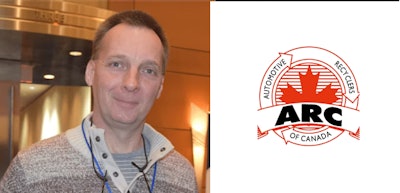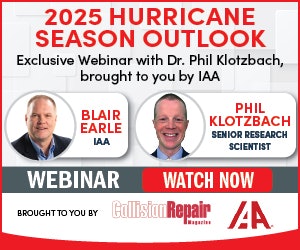
Toronto, Ontario -- The head of the Automotive Recyclers of Canada is calling on auto repairers and insurers to rethink their relationship with reclaimed auto parts.
"Here in Canada, our recyclers supply quality recycled OEM parts — not rebuilt components," wrote the ARC's executive director, Wally Dingman, in a new opinion piece published on canadianrecycler.ca. "... With the right standards and [with cross-industry] collaboration, we can continue to expand our role in providing affordable, sustainable parts that meet the highest expectations."
As the costs — both economic and environmental — of using new OEM components in repairs continue to rise, Dingman says the value of high-quality recycled parts is growing rapidly.
He noted that, in the U.K., the Aviva subsidiary Solus is working to better integrate reclaimed parts into its operations. He notes that this effort is being made even though the company faces the same challenges that have prevented Canadian insurers from embracing recycled parts -- part traceability, process consistency and insurer liability fears — closely mirror those in Canada.
While the ARC's member yards already follow strict environmental and operational standards under the CAREC program, Dingman acknowledges that key system gaps remain. Inventory integration, consistent grading and stronger connections with estimating platforms are all areas in need of improvement.
But the real bottleneck, he suggests, lies in misaligned financial incentives.
“Profitability for repairers is often an unspoken factor — they make more money fitting new parts, even though that costs insurers more,” Dingman wrote, adding that until labour compensation models are updated to reflect the prep work often required to install reclaimed components, uptake will remain slow.
He said his organization is calling for a modernized national grading system, inventory integration with collision estimating platforms and pursuing the development of a new reimbursement model that supports — rather than penalizes — green part usage.
“We’re not asking recyclers to do more for free,” he wrote. “If insurers want faster turnaround and broader adoption, they must help pay for the efficiencies they expect.”
Dingman also challenges a quiet truth in the repair industry: “Profitability for repairers is often an unspoken factor — they make more money fitting new parts, even though that costs insurers more.” Until payment structures reflect the added prep time reclaimed parts sometimes require, adoption will lag.
He added that his organization is now calling for national inventory and grading standards aligned with modern vehicle. Financial models that reward, not penalize, reclaimed part use. Collaborative input into OEM-led sustainability initiatives
Dingman closed with a call for collaboration across the sector — from collision centres to automakers — noting that many Canadian yards are already operating with digital inventories, fluid recovery systems and dismantling procedures that match OEM distribution standards.
“Reclaimed parts are not just cost-effective — they’re climate-critical,” he said. “Let’s be at the table as this industry evolves — not reacting to change, but shaping it.”

















